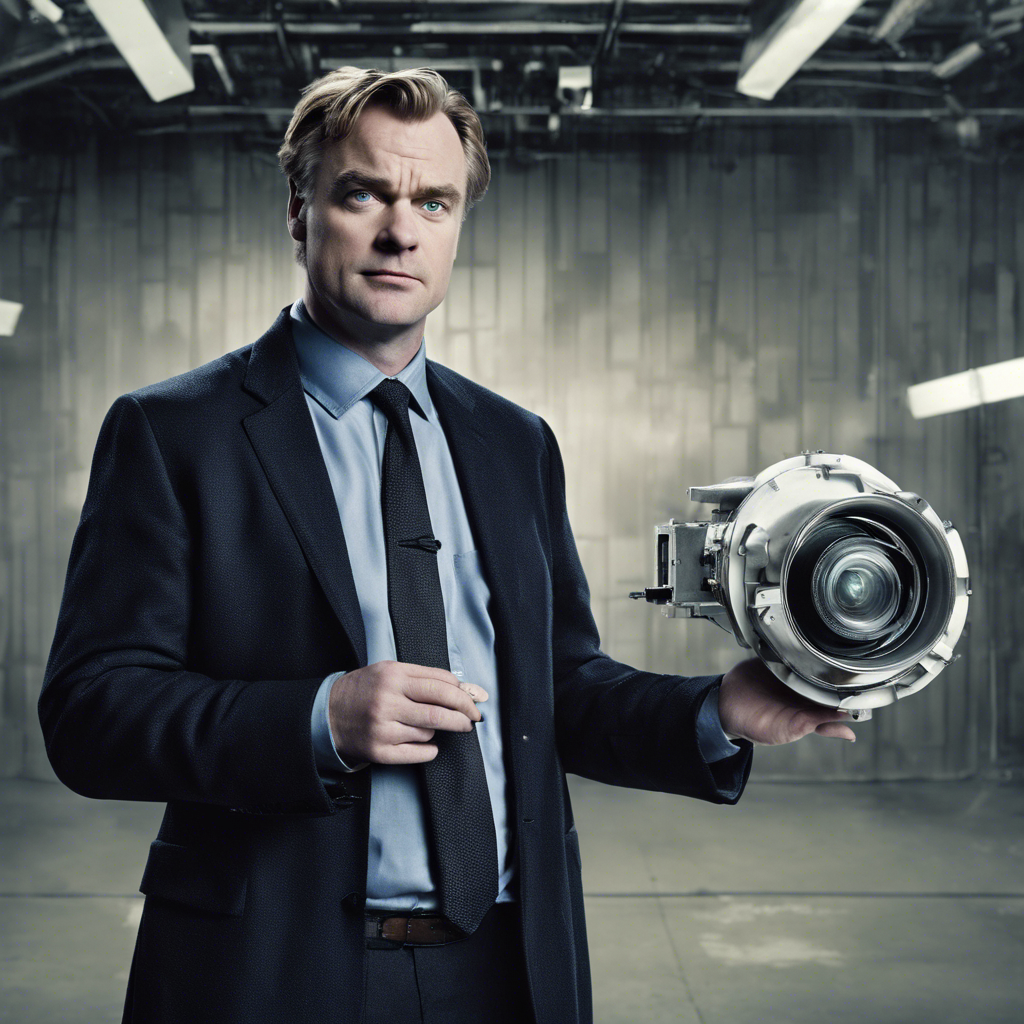Christopher Nolan on Technology and Film: Exploring the Promise and Perils

Acclaimed filmmaker Christopher Nolan discusses the role of technology in his films and the ethical dilemmas it presents.
Renowned filmmaker Christopher Nolan, known for his thought-provoking and visually stunning films, recently sat down for an interview to discuss the theme of technology in his work. From the conflicted nature of technology to the consequences of its misuse, Nolan delves into the complexities and moral implications that arise from our ever-evolving relationship with technology. In this interview, we explore his views on technology, the parallels between historical figures Nikola Tesla and Robert Oppenheimer, and his approach to storytelling in films like Inception, Interstellar, and his upcoming project Oppenheimer.
The Drama of Technology
Nolan believes that the conflict many of us feel about technology is inherently dramatic. Drawing inspiration from science fiction, he enjoys exploring the speculative nature of technological and sociological trends. He cites his Dark Knight trilogy as an example of speculative fiction, where he exaggerates contemporary American cities to bring out dramatic elements. Nolan also highlights the prescience of his brother’s screenplay for The Dark Knight, which predicted the use of surveillance through cellphones, a concept that has become a reality today.
Tesla and Oppenheimer: Similarities in Conflicted Views
Nolan draws a parallel between Nikola Tesla and Robert Oppenheimer, stating that both figures grappled with the ethical implications of their inventions. He highlights Tesla’s controversial credit for the concept of mutually assured destruction and Oppenheimer’s belief that the bomb needed to be used for people to truly understand its power. Nolan emphasizes the abstracted philosophical approach both men possessed, leading them to navigate morally complex territory.
Inception and the Evolution of Digital Worlds
Nolan discusses how Inception, released during the rise of smartphones, explored the idea of inward-looking structures and the concept of realities within realities. He reveals that the film’s structure was influenced by the branching mechanisms of iPod menus, reflecting the changing ways people were starting to perceive reality due to technological advancements. Nolan emphasizes that while these connections may appear intentional in hindsight, his approach to filmmaking is instinctive and unselfconscious.
The Scale of Technological Consequences
Nolan’s films often explore the consequences of technological misuse on a grand scale. While films like The Prestige and Inception focus on personal consequences, his Batman films, Tenet, and Oppenheimer delve into the potential impact on millions or even all of humanity. Nolan explains that the scale of the story determines the size of the technology involved, with Oppenheimer’s story being a combination of personal and global implications.
Interstellar: A Celebration of Technological Ambition
Interstellar stands out in Nolan’s filmography as a celebration of technological ambition. The film portrays the exploratory spirit and the importance of science and technology in saving humanity from extinction. Nolan reveals that the film was influenced by a documentary on the Apollo missions, which highlighted society’s devaluation of exploration. He clarifies that his films are not didactic but aim to tell great stories.
The Realism of Technology in Oppenheimer
Nolan discusses his decision to portray the Trinity atomic-bomb test in Oppenheimer with as much realism as possible. He explains that the use of real, photographed objects rather than computer-generated imagery was crucial to capture the beauty and terror of the event. Nolan believes that the resonance achieved through realism was necessary to convey the massive threat and hypnotic beauty associated with the Trinity test.
Exploring AI in Film
Despite his interest in technology and consciousness, Nolan has not yet made a film centered explicitly on artificial intelligence (AI). He acknowledges his brother’s work on Westworld and Person of Interest, which delve into AI and data security. Nolan also praises Stanley Kubrick’s 2001: A Space Odyssey, which he feels encapsulates the essence of AI. While he hasn’t explored AI directly, Nolan appreciates the existing explorations of the subject in other works.
Emotional Impact and Parental Themes
Nolan reflects on the emotionally gut-wrenching sequence in Interstellar, where the protagonist watches video messages from his children after missing decades of their lives. He credits his brother for the powerful story moment, which resonated with him as a parent. Nolan describes the process of filming the scene and the decision to use music as a diegetic sound, heightening the emotional impact.
The Importance of Oppenheimer
Nolan addresses the claim made in his film Oppenheimer that the Manhattan Project was the most important event in history. While he acknowledges the argument of the “key man of history,” he believes that Oppenheimer’s role in changing the world forever is hard to refute. He emphasizes the significance of Oppenheimer’s actions and the irreversible impact they had on humanity.
Conclusion:
Christopher Nolan’s exploration of technology in his films offers a nuanced perspective on its promise and perils. From the speculative nature of science fiction to the personal and global consequences of technological advancements, Nolan’s work challenges audiences to consider the ethical dilemmas and moral complexities that arise from our reliance on technology. As he continues to captivate audiences with his storytelling, Nolan remains committed to finding engaging stories that resonate with him, regardless of their scale.










